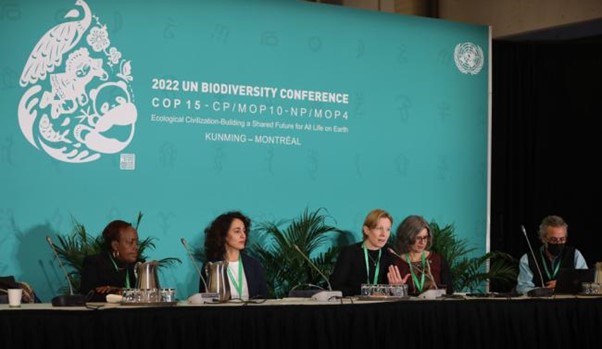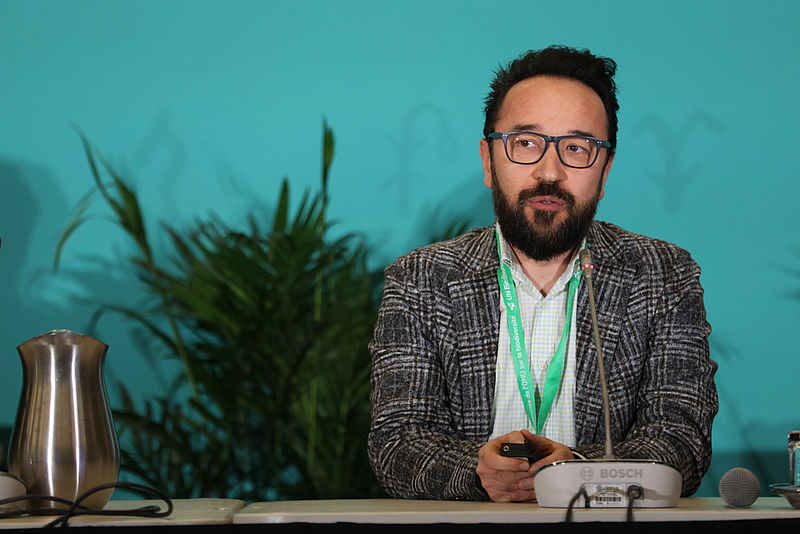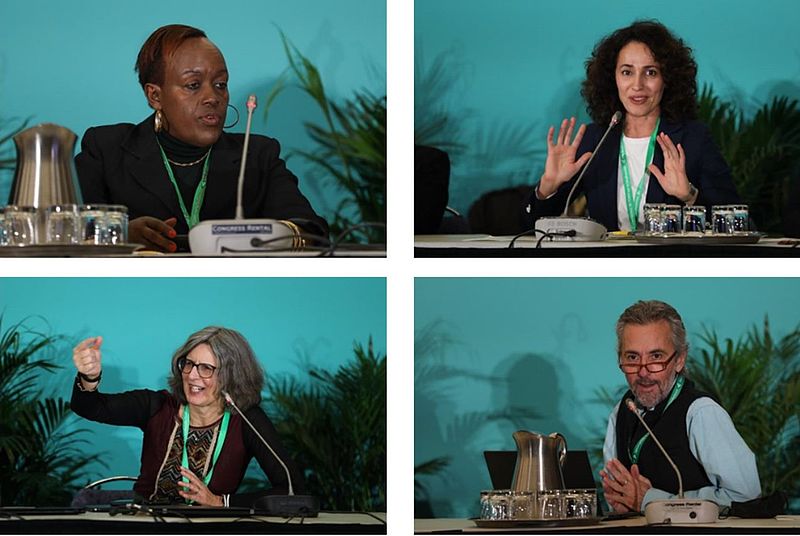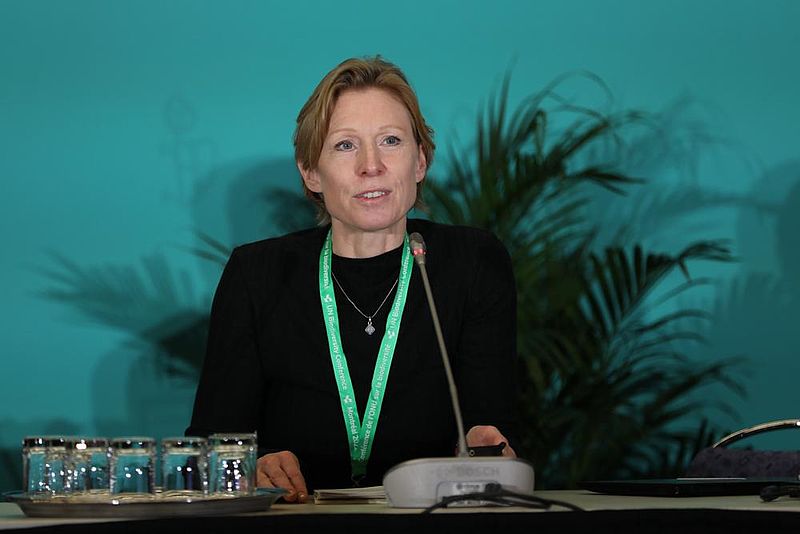Land is the common denominator between the three Rio Conventions: UNFCCC, CBD and UNCCD. But implementation currently lacks coordination and coherence. As a consequence, the conventions compete for land to achieve their targets systems, synergies remain low and transactions costs are high. An ELD-UNCCD side event at the 2022 UN Biodiversity Conference now identified concrete entry points for better linkages and coherent implementation of the climate, land, and biodiversity agendas.
New evidence from an ELD study in Rwanda on the economics of land-based Rio-targets
During the side event, Alisher Mirzabaev (University of Bonn) presented preliminary findings of a first-of-its-kind assessment in Rwanda on the costs and benefits of a siloed versus integrated programming. The numbers show: taken together, Rwanda's nationally agreed climate, biodiversity, and land degradation agendas for the restoration of terrestrial ecosystems show an area larger than the country itself. This strongly indicates an isolated target setting for the agendas and a significant overlap of the respective designated land areas. And it causes enormous transaction costs. In Rwanda, 25% of all costs related to land restoration are transaction costs. Every forth USD spend on restoration is affected.
Entry points for leveraging synergies between the Rio Conventions
Evidence from Rwanda suggests that reducing transaction costs is the main channel for leveraging synergies between the Rio conventions and hence making land restoration per hectare less costly. The two most effective and cost saving entry points are:
- Integrated target and indicator setting, and joint spatial planning with integrated land maps to identify areas/land for restoration with most environmental impact and effect on all three Rio target systems;
- Joint and coherent monitoring and evluation system to measure progress.
New momentum for synergies from the new Global Biodiversity Framework
During the side event, representatives from the Secretariats for the Rio Conventions agreed in highlighting the importance of synergistic action between the agendas. And the new and seminal Global Biodiversity Framework might open a new chapter for synergies among the Rio Conventions. Particularly target 1 (Integrated Spatial Planning), target 2 (Restore 30% of degraded ecosystems), target 3 (Protect 30% of terrestrial and marine areas) target 10 (Sustainable Agriculture), and other targets of the new framework are directly related to the UNCCD targets and the UNFCCC land-based targets.
The political momentum to converge the target systems sparked by the adoption of the Global Biodiversity Framework now needs to be translated to action. The adoption of the GBF, initiated a process to translate its new target system into national strategic implementation plans (NBSAPS). This process represents an opportunity for each country to leverage synergies for efficiency gains and better target achievement by consistently integrating the biodiversity agenda with other existing agendas, plans and sector strategies of the country.
Three possible actions to support synergies
- Building a "Coalition of Willing Parties" / “Coalition of Parties for Synergies” that are committed to establish the highest possible level of synergies between their national Rio agendas.
- Building an integrated, interactive land use map across the three Rio-Conventions for land-based targets.
- Establish a technical support structure for joint action towards synergies and coherence among Rio Secretariats.
The side event at the CBD COP 15 in Montreal was jointly organized by the Economics of Land Degradation (ELD) Initiative together with the UN Convention to Combat Desertification (UNCCD). Next to an expert input by Rwanda case study lead Alisher Mirzabaev (University of Bonn) it featured a panel discussion with representatives from the Secretariats of the Rio Conventions - Sasha Alexander (UNCCD), Jamal Annagylyjova (CBD) and Dirk Nemitz (UNFCCC) - the Federal Ministry for Economic Cooperation and Development of Germany (Dr. Heike Henn) and the Rwandan civil society (Annie Karaiba). The event was moderated by ELD Coordinator, Nina Bisom.
► Learn more:




